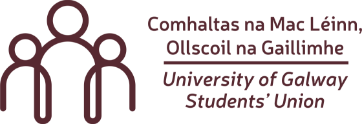

The history of Galway is intrinsically linked with the coast. Coasts are complex environments where the interaction of atmospheric, marine and terrestrial process occurs. It is imperative that individuals of all ages have access to understandable information in relation to how such zones function. Five Geography undergraduate students and two of their lecturers are currently undertaking this project as an initiative aimed at getting people with knowledge of beaches together, and to get this knowledge out to a wider audience.
Essentially the project proposes to design a series of educational boards which will be positioned along the Salthill promenade. By involving several stakeholders including Salthill beach managers and users, local business owners, and residents amongst others, we aim to gather local knowledge along with easily accessible scientific coastal knowledge in order to produce the content of the boards. Additionally, down the line we would like to develop a series of supplementary materials to enable school teachers to integrate knowledge of beaches into their learning programme. We hope that I LIKE BEACHES helps to educate individuals about the inherent importance of Galway’s beaches and coastal areas.
Students: Jennifer Logan, Jennifer Corbett, Shaun Byrne, Aisling Miller, Michael Murphy
Staff: Dr. Eugene Farrell, Dr. Kevin Lynch
You can follow the progress of the project through their Facebook page, Twitter account and email address.
Project Update – 10 June 2014
Local primary school training coastal managers from a young age
Location Ladies Beach, Salthill
Date 10 June 2014
The ‘I Like Beaches’ project is taking 44 of Scoil Íde’s (Salthill) junior and senior infants on a beach field trip. The children will learn about the processes that shape and maintain the beach. They will do hands on activities that will demonstrate how waves and wind use their energy to move sand and shape our beaches, growing or eroding as the weather conditions change. Children like the rest of us love the beach, they are also naturally inquisitive and so this is a great opportunity to awaken a real appreciation of what beaches are and how they function. While Climate Change and its effects are in the news every day, it is our kids that will feel the full impacts in the years to come and be expected to deal with them. The I Like Beaches project hopes this small initiative helps in preparing them for the challenges ahead.
Project Update – 31 January 2014:
Updates:
- Meeting with Galway County Council Friday 31 January to discuss the project and possible collaboration on educational boards.
- Preparations for press release and possible publications and dates being investigated.
- First meeting with stakeholders scheduled for Tuesday 18 February in Galway Business School.
Activities:
- On 8 February, Dr. Eugene Farrell, staff partner, is giving a talk in Trinity College entitled ‘I LIKE BEACHES: a public outreach and educational initiative’.
- Developing advertising campaign and questionnaires for the stakeholder meeting.
- Increase in Facebook presence- page acting as a discussion board and also as a resource tool.
- Continued addition to individual reflective journal for use in published academic work.
Project Update – 5 December 2013:
- Identified the task at hand and brainstormed further ideas
- Selected project managers
- Prepared a detailed plan of action for December and January
- Designated each members role and the jobs the subsequently need to carry out in the initial two months
- Idea of a reflective journal – contact within the college- possible publication opportunity
- Begin compiling knowledge regarding all aspects of coastal processes
- Set up Blackboard account for group – contact each other; add information to content folder. Will help with study and keeping on top of things
- Had initial contact with Galway City Council who have given us various proposals but are on board with the project and fully support it.
- Christmas period is designated as a study period. The idea is to have every member gain as much knowledge as possible about the area – each member has been designated a specific study area
